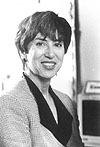
Career Services Offers Many Resources to Mason
By Patricia CarrettaIn today's rapidly changing workplace, effective career management is critical for both short- and long-term career successes. Whether you are pursuing your first professional job, hoping to advance in your current field, or making a career change, you will need a plan of action. Many resources are available to assist you with this
 |
Recently, George Mason's Career Services office compiled a list of strategies that contributed to the career success of the graduates/alumni. Here's what they had to say, followed by suggestions for implementation.
- Know your strengths and how to market them effectively. Demonstrate that you can do the job; find ways to show others your skills/knowledge areas and personal attributes. Learn to match your skills with essential job functions and work to develop the skills required for future success. Become the translator...make the connections between what you have done in the past and what you can do in the future.
- Target a career field and learn as much about it as possible. Information about career fields may come from a variety of sources. Career publications will be found in the university's career library or in community libraries. Professional associations are also a source of information. Check the Encyclopedia of Trade and Professional Associations for addresses and phone numbers. The Internet offers numerous sites, including George Mason's Career Services web page, which provides links to many other useful sites. Other sites include The Riley Guide, CareerNet, Occupational Outlook Handbook, and Your Parachute: The Net Guide. Think "alternatively": explore the realm of possibilities within a job/career family; learn to spot employment trends; and don't limit your job search to large organizations. (Most new employment in the 1990s will be generated by businesses with less than 100 employees.)
- Don't let a lack of experience keep you from pursuing your career interests. Consider volunteering a few hours a week to gain some experience. Talk to your supervisor or department head about new assignments or projects that will provide additional experience in areas of interest. Research professional seminars and training programs through which you could acquire knowledge and skills. Consider enrolling in a course at the university or through your community's adult education program.
- Look beyond the "want ads." Studies of workers of all types have found that no more than 20 percent of job placements occur through traditional job-hunting sources. Rather, 60 to 80 percent of jobs are found through friends, relatives, personal contacts, and direct application. You need to apply to targeted companies, regardless whether the firms are advertising open positions, and you need to learn enough about them to ask informed questions and relate your qualifications to the needs of the organization. Begin by using directories and business journals located in career and community libraries and researching the Internet for employer information and job leads.
- Actively build/create contacts with people and organizations most likely to know about or offer the kinds of work you desire. It's not just whom you know...it's how you make yourself visible to those with power to hire and with connections to those who do. Effective networking requires preparation and practice. Networking is asking people if they are aware of job openings for someone with your qualifications, or if they know other people who might know of an opening for someone with your qualifications. Your list of people with whom to network might include friends, classmates, George Mason alumni, faculty, current and former coworkers, neighbors, members of organizations to which you belong, professional acquaintances, or people you met at parties or business meetings. Prepare a networking script and practice it. Learn to use the telephone effectively. Find a mentor or coach--someone who believes in your potential and wants to advance your career. Join professional and trade associations. Remember that follow-up is essential to effective networking.
- Prepare resumes/cover letters that are nothing less than "A+." Components of effective letters include showing interest in the organization, demonstrating that you have done your homework, relating your background to the qualifications sought, using correct grammar and spelling, varying your sentence structure, and writing in a natural voice. Components of effective resumes include appearance, emphasis on accomplishments and strengths, correct grammar and spelling, organization of your qualifications in support of your goal or objective, and concise descriptions of specific skills and experiences.
- Remember that a job is not won by qualifications alone. The general impression you make during an interview may determine the outcome. Your ability to build rapport with the interviewer, answer and ask questions confidently and thoughtfully, and close the interview on a positive note are just as critical as demonstrating how your qualifications meet the needs of the employer. Be specific and provide examples that demonstrate your skills and qualifications. Your examples should describe a specific situation in which you were involved, explain your role and what action you took, and illustrate the results you achieved. One Mason alumnus said, "My wife drilled me for hours for several nights until I was able to answer questions quickly, concisely, and naturally." How you follow up after the interview also contributes to the overall impression.
- Salary isn't the only factor. Do your salary research by using the library, professional associations, and the Internet. Practice negotiating. Consider entire compensation packages when evaluating a job offer. Keep an eye on the future, and evaluate for future marketability.
- Make your career search an everyday thing. Finding satisfying, rewarding employment is a full-time job that requires developing a plan; setting reasonable goals, timelines, and strategies/ actions for accomplishing it; getting organized; committing the time to do it; and rewarding yourself when goals are met.